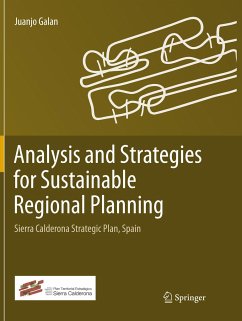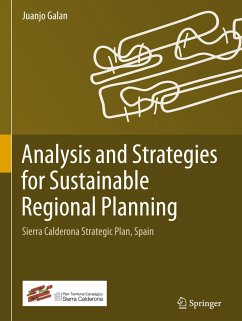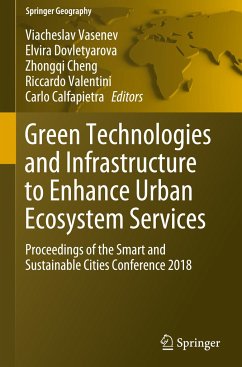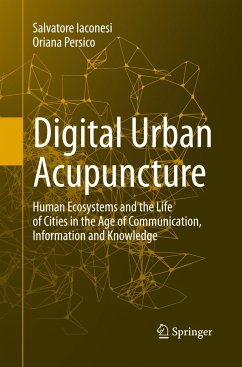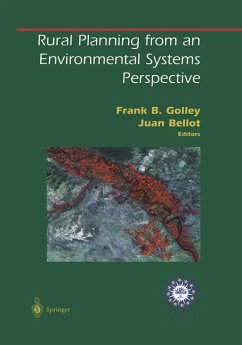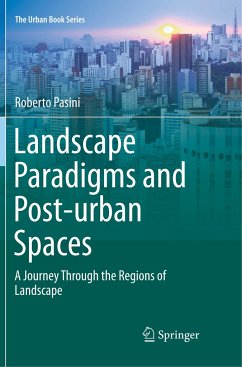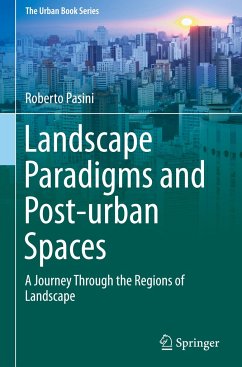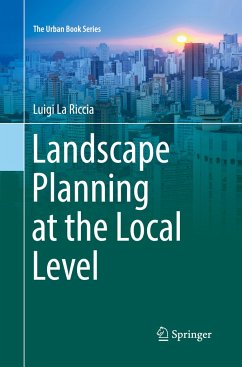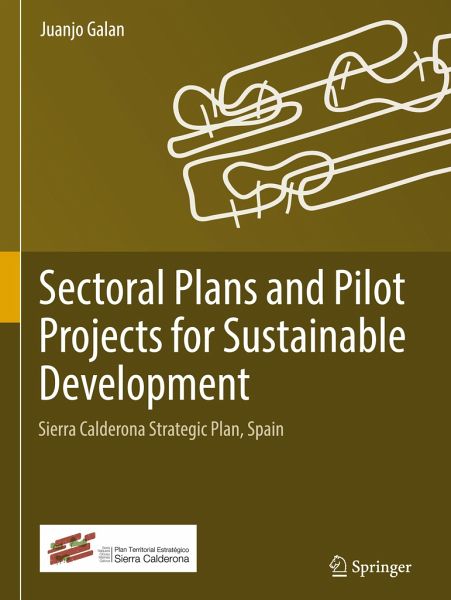
Sectoral Plans and Pilot Projects for Sustainable Development
Sierra Calderona Strategic Plan, Spain

PAYBACK Punkte
58 °P sammeln!
This is volume 2 of a two-volume work. It discusses a set of ten sectoral plans about natural environment, agriculture and husbandry, urban environment and social welfare, infrastructures and mobility, cultural heritage, tourism and public use, landscape, sustainability, socio-demography, economic development and governance. The sectoral plans are accompanied by eighteen pilot projects that develop in detail their most sensitive or relevant parts. The book is intended for planners and researchers from various disciplines, including urban planning, forestry, agriculture, cultural and touristic ...
This is volume 2 of a two-volume work. It discusses a set of ten sectoral plans about natural environment, agriculture and husbandry, urban environment and social welfare, infrastructures and mobility, cultural heritage, tourism and public use, landscape, sustainability, socio-demography, economic development and governance. The sectoral plans are accompanied by eighteen pilot projects that develop in detail their most sensitive or relevant parts. The book is intended for planners and researchers from various disciplines, including urban planning, forestry, agriculture, cultural and touristic management, and sustainability studies.
The book presents a unique example of integral planning at different scales and across different types of landscapes found on the outskirts of metropolitan areas. It features a sustainability orientated integrated plan to maximise the performance of the south-central area of the Calderona Mountain Range, Spain (Sierra Calderona). It is informed anddriven by social, cultural, perceptual, sustainability and economic factors supported by a participative process, acknowledging the frequent conflict between the natural and cultural values found there and the strong pressure for transformation and public use.
Incorporating new methodologies and graphical systems for regional and local planning, it constitutes an example of balanced and multidisciplinary planning, based on principles of sustainability, system thinking, new governance and local adaptation.
The book presents a unique example of integral planning at different scales and across different types of landscapes found on the outskirts of metropolitan areas. It features a sustainability orientated integrated plan to maximise the performance of the south-central area of the Calderona Mountain Range, Spain (Sierra Calderona). It is informed anddriven by social, cultural, perceptual, sustainability and economic factors supported by a participative process, acknowledging the frequent conflict between the natural and cultural values found there and the strong pressure for transformation and public use.
Incorporating new methodologies and graphical systems for regional and local planning, it constitutes an example of balanced and multidisciplinary planning, based on principles of sustainability, system thinking, new governance and local adaptation.



